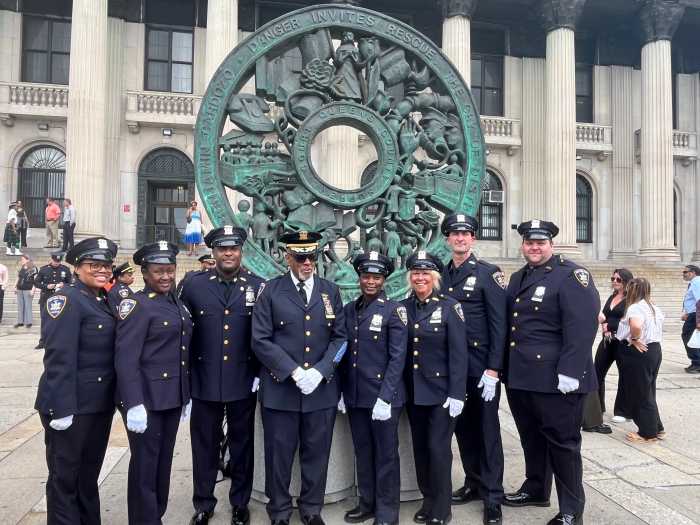By Alex Christodoulides
Some of Queens's most fragile residents have a new temporary home at Queens Hospital Center, which unveiled its neonatal intensive care unit last week.
The unit, which houses babies born prematurely and those with severe illnesses, is the first of 11 such units planned for the city's public hospitals in a $3 million developmental care initiative. Queens Hospital Center's NICU is equipped with special beds with shades to minimize light and noise and incubators to keep the babies warm all to simulate an environment as close as possible to the mother's womb, the hospital said.
“This is something we're really proud of at the Health and Hospitals Corporation and Queens Hospital Center,” said Dr. Ivan Hand, director of neonatology at Queens Hospital Center. “One thing we've noticed at our new NICU is the babies go home earlier.”
Queens Hospital Center, located in Fresh Meadows, is one of two public hospitals in the borough. Last year 23,000 babies were delivered in New York City public hospitals, and 24 percent needed intensive care, said city Health and Hospitals Corp. President Alan Aviles.
The unit on the hospital's second floor is an oasis of quiet broken only by the beeping of monitors, where babies sleep six to a room in special incubator beds fitted with “giraffe” shades that can be raised or lowered on a vertical arm. The beds cost about $28,000 each and are equipped with special blue lights, which Hand said are used to treat babies with jaundice, which is common in preemies.
“Shh, I'm growing!” admonishes a typed sign attached to one of the beds. Another says “Please keep my isolette cover down.” During a typical week there may be 12 to 15 babies in the neonatal intensive care unit, both preemies and others with illnesses. Preemies often stay in the hospital about as long as they would need to be full-term babies, hospital staff said.
The smallest baby in the unit was born 23 weeks into the pregnancy, Hand said. A nurse said the little boy weighed 490 grams, just over one pound.
Two and a half weeks later, he is doing fine, Hand said.
“The baby was on his mother's milk alone,” which is fortified to provide extra nutrients, he said. Breast milk in the first few days after birthing contains antibodies and helps an infant's immune system develop.
“Initially the babies have problems with their lungs, then they have problems with infections because they can't fight well on their own,” Hand said.
But also, because many of the premature babies are born at critical points in their development, growth is another concern for the Queens Hospital Center staff.
“One of the things we're most concerned with is brain development,” Hand said. The characteristic ridges of the human brain develop later in pregnancy, so many of the preemies have yet to reach that stage, he said.
The nurses who staff the unit are encouraged to have frequent contact with the babies when they are awake because it aids their development.
The hospital and HHC hope the new NICU serves as a model for centers around the city and country.



































